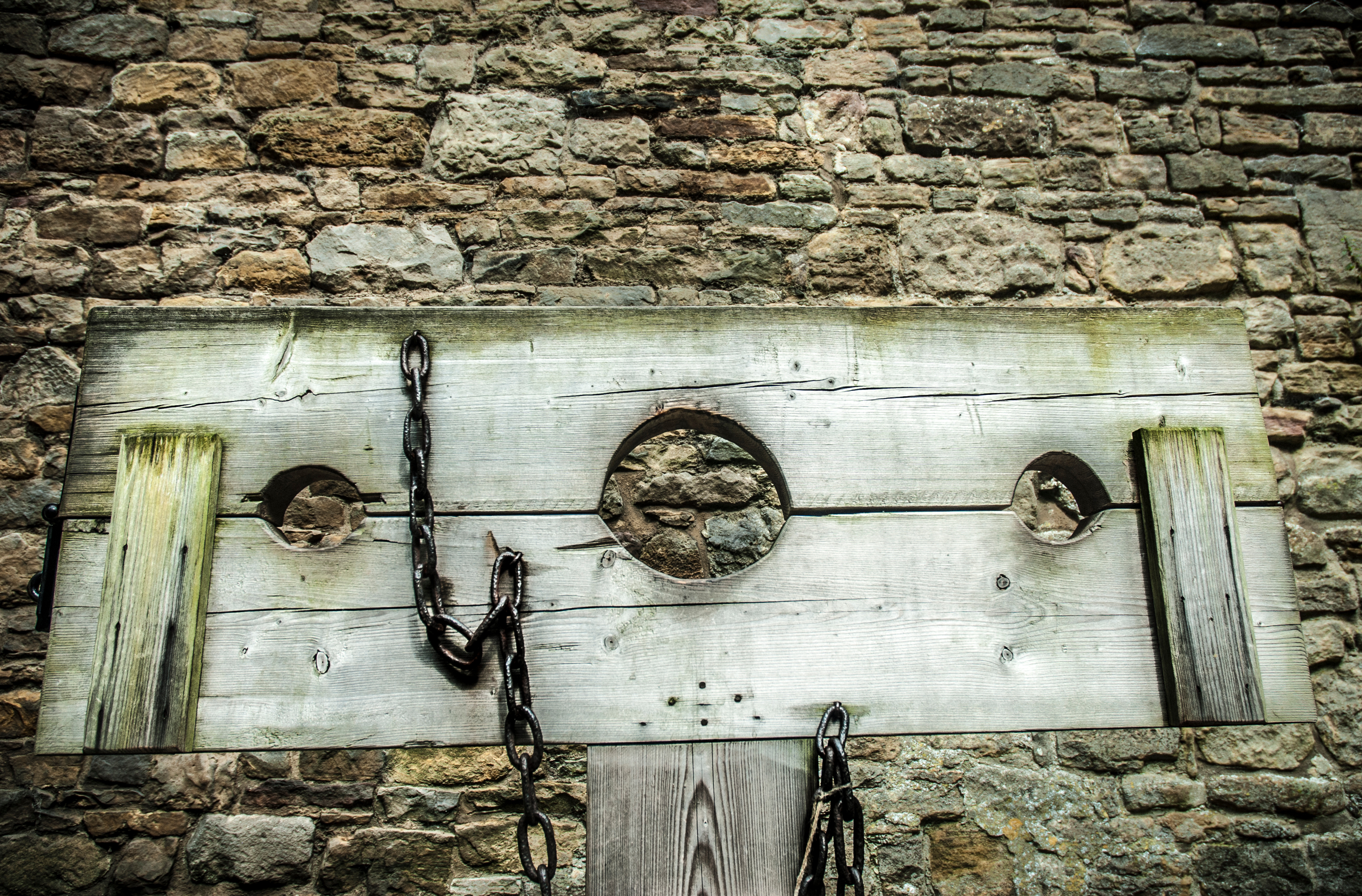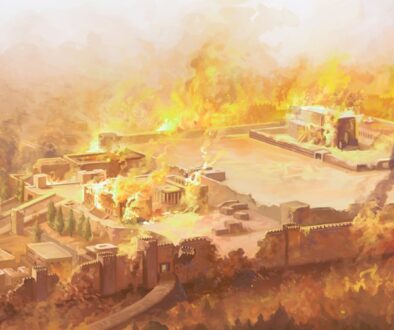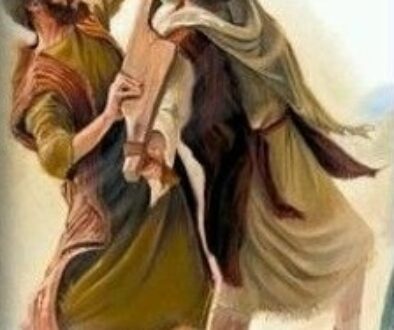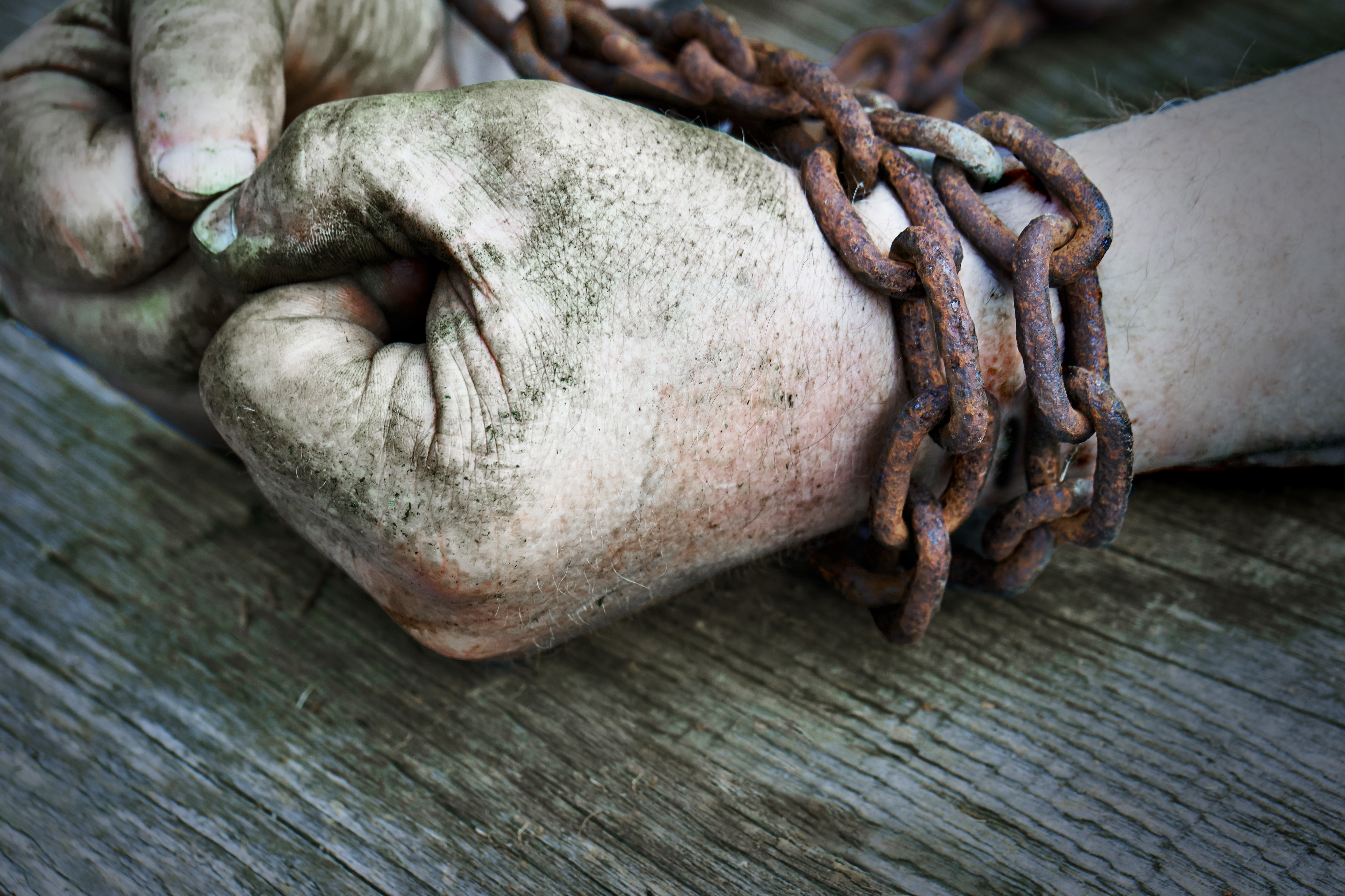2 Kings 25 Jerusalem Falls Pt 1
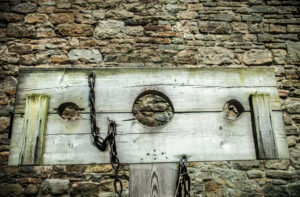
Jerusalem will fall under the hand of Nebuchadnezzar because God’s people refused to listen. Zedekiah is the final king in David’s natural line.
We left off last time in the end of the fourth year of Zedekiah’s reign. Zedekiah had gone to Babylon with Seraiah. Zedekiah begins to rebel in his heart and seek out alliances. Jeremiah continues to call out to the people to repent and accept the Lord’s direction. Let’s rejoin our story for the last years of Judah, and let the Spirit lead our journey.
♥ ♦ ♥
Zedekiah comes back from Babylon a changed man. He listened intently as Seraiah read the words of the Lord. He wishes that Seraiah hadn’t thrown the book into the Euphrates because Zedekiah would have liked to study it. Now all he has is the memory of it to cling to.
But he also has Jeremiah’s current words to deal with. In his heart, he knows the order of these two messages, but he keeps asking for it to be reversed. For God to take down Nebuchadnezzar before he can take down Judah.
“It’s time for another object lesson” says the Father. He calls to Jeremiah, who immediately turns his ear to listen.
“Go, buy a potter’s earthenware flask, and take some of the elders of the people and some of the elders of the priests, and go out to the Valley of the Son of Hinnom at the entry of the Potsherd Gate, and proclaim there the words that I tell you” (Jeremiah 19:1-2). “After you speak to them, ‘Then you shall break the flask in the sight of the men who go with you’ (Jeremiah 19:10).”
Jeremiah goes to the market and picks out a flask as the Lord commanded. It is an earthenware and simple. Nothing special about it, beyond being chosen to be used as a message from the Lord.
Jeremiah then goes to the courtyard of the Temple and chooses several of the elders and senior priests to accompany him on his mission. He leads the group of men down into the Valley of the Son of Hinnom. This place represents everything that is evil or defiled in the minds of most of this company. The procession comes to a halt at the threshold of the Potsherd Gate.
Jeremiah holds the flask high in the air, drawing everyone’s attention to it. He begins speaking the words the Lord has given him.
“Hear the word of the Lord, O kings of Judah and inhabitants of Jerusalem. Thus says the Lord of hosts, the God of Israel: Behold, I am bringing such disaster upon this place that the ears of everyone who hears of it will tingle. Because the people have forsaken me and have profaned this place by making offerings in it to other gods whom neither they nor their fathers nor the kings of Judah have known; and because they have filled this place with the blood of innocents, and have built the high places of Baal to burn their sons in the fire as burnt offerings to Baal, which I did not command or decree, nor did it come into my mind— therefore, behold, days are coming, declares the Lord, when this place shall no more be called Topheth, or the Valley of the Son of Hinnom, but the Valley of Slaughter. And in this place I will make void the plans of Judah and Jerusalem, and will cause their people to fall by the sword before their enemies, and by the hand of those who seek their life. I will give their dead bodies for food to the birds of the air and to the beasts of the earth. And I will make this city a horror, a thing to be hissed at. Everyone who passes by it will be horrified and will hiss because of all its wounds. And I will make them eat the flesh of their sons and their daughters, and everyone shall eat the flesh of his neighbor in the siege and in the distress, with which their enemies and those who seek their life afflict them” (Jeremiah 19:3-9).
Jeremiah slams the flask onto the side of the gate and pieces rain down to the ground. He continues to smash the pot until there is nothing left of it but tiny broken pieces. NO ONE can reassemble this mess. Now for the last part of the Lord’s message to these men.
“Thus says the Lord of hosts: So will I break this people and this city, as one breaks a potter’s vessel, so that it can never be mended. Men shall bury in Topheth because there will be no place else to bury. Thus will I do to this place, declares the Lord, and to its inhabitants, making this city like Topheth. The houses of Jerusalem and the houses of the kings of Judah—all the houses on whose roofs offerings have been offered to all the host of heaven, and drink offerings have been poured out to other gods—shall be defiled like the place of Topheth” (Jeremiah 19:11-13).
After a few minutes, the group begins to break up. Jeremiah turns and heads directly to the courtyard of the House of the Lord. When he enters, he begins speaking the words that the Lord has reserved for their hearing.
“Thus says the Lord of hosts, the God of Israel, behold, I am bringing upon this city and upon all its towns all the disaster that I have pronounced against it, because they have stiffened their neck, refusing to hear my words.”
Pashhur, the chief officer of the house of the Lord, has heard enough! He orders the Temple guards to seize Jeremiah. Once they have him firm in hand, Pashhur orders that Jeremiah be beaten.
Pashhur, with a gleeful smile on his face, watches the guards strip Jeremiah of his coat and begin pummeling him with their fists. Once Jeremiah is on the ground and bleeding, Pashhur orders him put in the stocks of the Upper Benjamin Gate.
Jeremiah is firmly latched in the stocks when Pashhur approaches him. “This is for your insolent words against the people. Their God will never let your words come to pass.”
Jeremiah is left in the stocks all night. He can neither sit, nor fully stand. By the time morning comes, Jeremiah’s back and knees are screaming at him. His neck and shoulders aren’t much better.
With the conclusion of the morning sacrifice, Pashhur comes over to Jeremiah. “I’m going to release you. Now, GO HOME. I don’t want to see your face again for at least a week.”
Pashhur unlocks the stocks and Jeremiah slowly straightens up. Once he reaches his full height, Jeremiah speaks the Lord’s words to Pashhur; His judgment on this man.
“The Lord does not call your name Pashhur, but Terror on Every Side. For thus says the Lord: Behold, I will make you a terror to yourself and to all your friends. They shall fall by the sword of their enemies while you look on. And I will give all Judah into the hand of the king of Babylon. He shall carry them captive to Babylon, and shall strike them down with the sword. Moreover, I will give all the wealth of the city, all its gains, all its prized belongings, and all the treasures of the kings of Judah into the hand of their enemies, who shall plunder them and seize them and carry them to Babylon. And you, Pashhur, and all who dwell in your house, shall go into captivity. To Babylon you shall go, and there you shall die, and there you shall be buried, you and all your friends, to whom you have prophesied falsely” (Jeremiah 20:3-6).
Pashhur’s face goes red, but he says nothing. He holds out his hand with his finger pointing to the nearest exit for Jeremiah to leave from.
Jeremiah wags his head and twists his back to get a few of the kinks out, then leaves. He is going home to have a talk with the Lord. This is NOT what he signed on for.
Once in the safety of his own home, Jeremia begins to plead his case to the Lord.
“O Lord, you have deceived me, and I was deceived; you are stronger than I, and you have prevailed. I have become a laughingstock all the day; everyone mocks me. For whenever I speak, I cry out, I shout, ‘Violence and destruction!’ For the word of the Lord has become for me a reproach and derision all day long. If I say, ‘I will not mention him, or speak any more in his name,’ there is in my heart as it were a burning fire shut up in my bones, and I am weary with holding it in, and I cannot. For I hear many whispering. Terror is on every side! ‘Denounce him! Let us denounce him!’ say all my close friends, watching for my fall. ‘Perhaps he will be deceived; then we can overcome him and take our revenge on him.’ But the Lord is with me as a dread warrior; therefore my persecutors will stumble; they will not overcome me. They will be greatly shamed, for they will not succeed. Their eternal dishonor will never be forgotten. O Lord of hosts, who tests the righteous, who sees the heart and the mind, let me see your vengeance upon them, for to you have I committed my cause.
Sing to the Lord; praise the Lord! For he has delivered the life of the needy from the hand of evildoers.
Cursed be the day on which I was born! The day when my mother bore me, let it not be blessed! Cursed be the man who brought the news to my father, ‘A son is born to you,’ making him very glad. Let that man be like the cities that the Lord overthrew without pity; let him hear a cry in the morning and an alarm at noon, because he did not kill me in the womb; so my mother would have been my grave, and her womb forever great. Why did I come out from the womb to see toil and sorrow, and spend my days in shame?” (Jeremiah 20:7-18).
The Lord allows Jeremiah to ‘cry it out’, and then sends him comfort in the form of healing for his aching joints. Jeremiah sits down in his chair and rests the rest of the day.
Zedekiah sends a messenger to Egypt to ask their king for help. Once the first communication is established, messengers go back and forth regularly for two years before Egypt consents to help Jerusalem.
It is the beginning of the nineth year of Zedekiah’s reign and Nebuchadnezzar is back in Judah. He is making his way towards Jerusalem, but he stops to deal with Lachish and Azekah. These are the only fortified cities Judah has left, besides Jerusalem. Zedekiah sneaks a messenger out of the city to take a message for help to Pharaoh Hopra.
While Nebuchadnezzar is approaching, the Lord sends Jeremiah to Zedekiah with a message. Jeremiah finds Zedekiah in the garden. Zedekiah braces himself when he sees Jeremiah approaching. Without preamble, Jeremiah delivers the message the Lord gave him for the king.
“Thus says the Lord, the God of Israel: Go and speak to Zedekiah king of Judah and say to him, ‘Thus says the Lord: Behold, I am giving this city into the hand of the king of Babylon, and he shall burn it with fire. You shall not escape from his hand but shall surely be captured and delivered into his hand. You shall see the king of Babylon eye to eye and speak with him face to face. And you shall go to Babylon.’ Yet hear the word of the Lord, O Zedekiah king of Judah! Thus says the Lord concerning you: ‘You shall not die by the sword. 5 You shall die in peace. And as spices were burned for your fathers, the former kings who were before you, so people shall burn spices for you and lament for you, saying, “Alas, lord!”’ For I have spoken the word, declares the Lord” (Jeremiah 34:2-5).
The words of Jeremiah give a little comfort to Zedekiah for a little while. That comfort flees when Nebuchadnezzar and his troops are right outside Jerusalem’s gates. “Will Pharaoh Hophra get here in time” wonders Zedekiah.
Zedekiah sends for Pashhur. He needs to ask Jeremiah what the Lord says will happen. He has been hearing Jeremiah’s words for years, but things have changed with this new alliance. And who better to ask Jeremiah’s opinion in the situation than Pashhur.
Pashhur comes before Zedekiah. Pashhur bows low before the king.
“I am sending you to the prophet Jeremiah for him to inquire of the Lord.”
“Why doesn’t the king inquire of the Lord through the priests? Surely you know that Jeremiah only gives negative answers.”
“But I believe he speaks the truth, no matter what it is. That cannot be said of all, who shall remain nameless.”
“Speak and I will take your message to him.”
“Inquire of the Lord for us, for Nebuchadnezzar king of Babylon is making war against us. Perhaps the Lord will deal with us according to all his wonderful deeds and will make him withdraw from us” (Jeremiah 21:2).
Pashhur finds Jeremiah in the courtyard of the Lord, as usual. He walks over to the place where Jeremiah stands. “I have something the king has asked me to ask of you.”
“I will speak ONLY the words of the Lord.”
Pashhur relays Zedekiah’s words. Jeremiah waits on the Lord for his answer. He doesn’t have to wait long.
“Thus you shall say to Zedekiah, ‘Thus says the Lord, the God of Israel: Behold, I will turn back the weapons of war that are in your hands and with which you are fighting against the king of Babylon and against the Chaldeans who are besieging you outside the walls. And I will bring them together into the midst of this city. I myself will fight against you with outstretched hand and strong arm, in anger and in fury and in great wrath. And I will strike down the inhabitants of this city, both man and beast. They shall die of a great pestilence. Afterward, declares the Lord, I will give Zedekiah king of Judah and his servants and the people in this city who survive the pestilence, sword, and famine into the hand of Nebuchadnezzar king of Babylon and into the hand of their enemies, into the hand of those who seek their lives. He shall strike them down with the edge of the sword. He shall not pity them or spare them or have compassion.’
“And to this people you shall say: ‘Thus says the Lord: Behold, I set before you the way of life and the way of death. He who stays in this city shall die by the sword, by famine, and by pestilence, but he who goes out and surrenders to the Chaldeans who are besieging you shall live and shall have his life as a prize of war. For I have set my face against this city for harm and not for good, declares the Lord: it shall be given into the hand of the king of Babylon, and he shall burn it with fire.’
“And to the house of the king of Judah say, ‘Hear the word of the Lord, O house of David! Thus says the Lord:
“‘Execute justice in the morning, and deliver from the hand of the oppressor him who has been robbed, lest my wrath go forth like fire, and burn with none to quench it, because of your evil deeds.’”
“Behold, I am against you, O inhabitant of the valley, O rock of the plain, declares the Lord; you who say, ‘Who shall come down against us, or who shall enter our habitations?’ I will punish you according to the fruit of your deeds, declares the Lord; I will kindle a fire in her forest, and it shall devour all that is around her” (Jeremiah 21:3-14).
Pashhur returns with Jeremiah’s message to the king. He HATES what Jeremiah has said, and is considering altering the message, just a little. That flies out the window with Zedekiah’s first words.
“Tell me everything Jeremiah said. DO NOT hold back. I need the pure truth of his words.”
Pashhur sigh. “You know he only speaks gloom and doom.”
“Yes, but his words are truth. I need to know if anything has changed since I allied with Egypt.”
“It has not. Here is what Jeremiah says…”
After hearing all that Jeremiah said, Zedekiah started thinking about the portion specifically for the house of David. “Execute justice in the morning, and deliver from the hand of the oppressor him who has been robbed.” Zedekiah starts thinking about who is oppressed in Judah. “The Israelites who are slaves to their brothers. They should have been released a LONG time ago. Maybe if we release them, the Lord will show favor on us.”
The next morning, Zedekiah called the people to the Temple. “The Lord has impressed on me to obey His command regarding our Hebrew brothers who are slaves in our own homes. By His Law, they were to serve no more than seven years, and then be released. They have served MANY MORE years that the seven. As a covenant to our God, that He may forgive our sins, we are releasing all our brothers this day from slavery.”
The people quickly agree and release their slaves. Even though the enemy was at the door, there was great celebration in Jerusalem that day.
Zedekiah keeps his ear to the ground, hoping for some sign that the Lord is honoring their decision. He is also listening for sounds of Egypt coming to their rescue.
Two days after the edict is issued, Nebuchadnezzar’s troops pull out for their positions around Judah. They have discovered that Egypt is on the way. Nebuchadnezzar plans to stop them before they reach Judah.
Two weeks after the edict is issued, the people begin to grumble. Their slaves are free but the Lord has not completely removed the threat of Nebuchadnezzar, nor has he returned the exiles. Little by little at first, the people begin taking their slaves back. Within a week, everything is back to how it was before the edict. Many of the slaves don’t even protest. Being ‘free’ means nothing when there is no food to fill your empty stomach and no job to earn a living.
God sends Jeremiah to Zedekiah again. Jeremiah goes and stands before him in his throne room.
“Thus says the Lord, the God of Israel: I myself made a covenant with your fathers when I brought them out of the land of Egypt, out of the house of slavery, saying, ‘At the end of seven years each of you must set free the fellow Hebrew who has been sold to you and has served you six years; you must set him free from your service.’ But your fathers did not listen to me or incline their ears to me. You recently repented and did what was right in my eyes by proclaiming liberty, each to his neighbor, and you made a covenant before me in the house that is called by my name, but then you turned around and profaned my name when each of you took back his male and female slaves, whom you had set free according to their desire, and you brought them into subjection to be your slaves.
“Therefore, thus says the Lord: You have not obeyed me by proclaiming liberty, every one to his brother and to his neighbor; behold, I proclaim to you liberty to the sword, to pestilence, and to famine, declares the Lord. I will make you a horror to all the kingdoms of the earth. And the men who transgressed my covenant and did not keep the terms of the covenant that they made before me, I will make them like the calf that they cut in two and passed between its parts— the officials of Judah, the officials of Jerusalem, the eunuchs, the priests, and all the people of the land who passed between the parts of the calf. And I will give them into the hand of their enemies and into the hand of those who seek their lives. Their dead bodies shall be food for the birds of the air and the beasts of the earth. And Zedekiah king of Judah and his officials I will give into the hand of their enemies and into the hand of those who seek their lives, into the hand of the army of the king of Babylon which has withdrawn from you. Behold, I will command, declares the Lord, and will bring them back to this city. And they will fight against it and take it and burn it with fire. I will make the cities of Judah a desolation without inhabitant” (Jeremiah 34:13-22).
Zedekiah’s head drops to his chest. “WHY can’t the people stay strong on even ONE issue? WHY can’t they stop even ONE sin” he asks himself. While he questions his people, he watches Jeremiah leave the throne room without so much as a bow or a ‘by your leave’. Zedekiah feels as though Jeremiah has shown him the respect that is due him; NONE.
While Nebuchadnezzar is off fighting with Egypt, Zedekiah sends word to Jeremiah. Jehucal the son of Shelemiah, and Zephaniah the priest, the son of Maaseiah approach Jeremiah bearing the king’s request; “Please pray for us to the Lord our God” (Jeremiah 37:3).
“Thus says the Lord, God of Israel: Thus shall you say to the king of Judah who sent you to me to inquire of me, ‘Behold, Pharaoh’s army that came to help you is about to return to Egypt, to its own land. And the Chaldeans shall come back and fight against this city. They shall capture it and burn it with fire. Thus says the Lord, Do not deceive yourselves, saying, “The Chaldeans will surely go away from us,” for they will not go away. For even if you should defeat the whole army of Chaldeans who are fighting against you, and there remained of them only wounded men, every man in his tent, they would rise up and burn this city with fire’” (Jeremiah 37:7-10).
The coast is clear, for now. There are no troops outside the city of Jerusalem. Jeremiah KNOWS that they will be returning soon though. He has something he needs to do outside the city. He needs to go to the land of Benjamin and receive his portion of his inheritance. It is not a critical matter, but it is something he can do while the time is right.
Jeremiah makes his way to the Benjamin Gate. When he arrives, a sentry named Irijah refuses to let him pass. He is the grandson of Hananiah, the prophet who challenged Jeremiah some time ago. The one who broke the yoke from around Jeremiah’s neck.
“You are deserting to the Chaldeans” (Jeremiah 37:13) accuses Irijah.
“It is a lie; I am not deserting to the Chaldeans” (Jeremiah 37:4) demands Jeremiah.
Irijah will not listen. He seizes Jeremiah and brings him to the officials of the city. Irijah tells them of Jeremiah’s attempt to leave the city, and his interpretation of Jeremiah’s actions.
“You traitor!”, “You call yourself a man of God, and yet you desert HIS people” are just a few of the accusations that are let fly from the officials. “We will teach you a lesson” is shouted as a promise and a threat.
Irijah and several of his fellow guards are called upon to ‘punish’ Jeremiah for his transgression. They begin beating him, as severe as what was delivered at the command of Pashhur. Once Jeremiah lies beaten and bloody on the floor, they drag him from the room and deposit him in the house of Jonathan, the secretary. It has been converted into a prison. And it is the worst of the prisons in Jerusalem. Here, the prisoners languish until they die. They are neither fed nor given anything to drink.
Shortly after Jeremiah was thrown in prison, Nebuchadnezzar’s army returned. They had broken the army of Egypt, just as the Lord said they would. In the tenth month of the nineth year, Nebuchadnezzar’s troops lay siege to Jerusalem. They are in this battle, no matter how long it takes.
Jeremiah remains in the dark and dismal place for many days. King Zedekiah needs to speak with him. He wants to ask him again, what the Lord has to say. He easily finds out where Jeremiah is being kept. Zedekiah calls for the guard to bring Jeremiah to his house.
Jeremiah is filthy and stinks when he is brought out of the dungeon that the secretary’s house has become. He is not fit to stand before the king. He is taken first to the stable where he is dunked in the horses’ watering trough. It is not the cleanest water, but it is water. With the layers of grime removed from his flesh, Jeremiah is given a used robe to wear. His beard is trimmed with the edge of a sword, and he is pronounced ready to go to the king.
Jeremiah is ushered into the house of the king. Zedekiah himself shuts the door behind them. He wants no one listening in on their conversation. Zedekiah is wringing his hands and he leans in close to Jeremiah when he poses his question.
“Is there any word from the Lord?” (Jeremiah 37:17a).
Jeremiah closes his eyes and takes a deep breath. “If this is to be my last moment of life, so be it Lord” he silently prays. To the king, he answers; “There is.” Jeremiah locks eyes with the king before continuing. “You shall be delivered into the hand of the king of Babylon” (Jeremiah 37:17b).
Zedekiah’s face falls but he makes no move to harm Jeremiah. Emboldened by the king’s reaction, Jeremiah poses a question to the king.
“What wrong have I done to you or your servants or this people, that you have put me in prison? Where are your prophets who prophesied to you, saying, ‘The king of Babylon will not come against you and against this land’? Now hear, please, O my lord the king: let my humble plea come before you and do not send me back to the house of Jonathan the secretary, lest I die there” (Jeremiah 37:18-20).
“I will not send you back to the house of Jonathan. But neither can I free you. Instead, you will be confined to the court of the guard. You will also be given a loaf of bread each day as your portion.”
“And for how long” asks Jeremiah.
“Until your God frees you, one way or another.”
(to be continued)
For only one chapter in 2 Kings and one chapter in 2 Chronicles, a LOT goes on in the years of Zedekiah. We see God reaching out to Zedekiah and the people numerous times. But His pleas fall on deaf ears. I’m certain that Jeremiah wasn’t the only prophet speaking the truth. I wonder how many times God called out to the people in those dark days. Yet, NO ONE listened.
We are in a time when God’s word is going out in unprecedented ways. Online bible study blogs, vlogs, and groups are just the newest way of sharing God’s word. I tried a Google search to find out if they could be numbered, and they cannot. There is a site that list the top 100 sites. Not surprisingly, mine is not among them. Not a problem.
But the fact that the word of God is going out so prolifically tells us something about the times we are living in. “And it shall come to pass afterward that I will pour out my Spirit on all flesh; your sons and your daughters shall prophesy, your old men shall dream dreams, and your young men shall see visions. Also on my menservants and on my maidservants in those days I will pour out my Spirit, and they shall prophesy” (Joel 2:28-29, quoted in Acts 2:17-21). The farther we get to the end, the more powerfully the Lord calls out to the people. He doesn’t want ANYONE to be lost. And NO ONE will be able to say; “I didn’t know”, because HE is making SURE that EVERYONE does.
Keep calling. Keep seeking. Keep spreading his love. Be like Jeremiah and Paul. Even prison didn’t silence them. We will see that the next time with Jeremiah.
Father God, thank You for letting me share Your word with others. I pray that this form is reaching some that might otherwise turn away. I Pray that YOUR stories are touching hearts and bringing people closer to You. Keep me listening to Your stories and direction so that I can tell them like YOU want them told.

